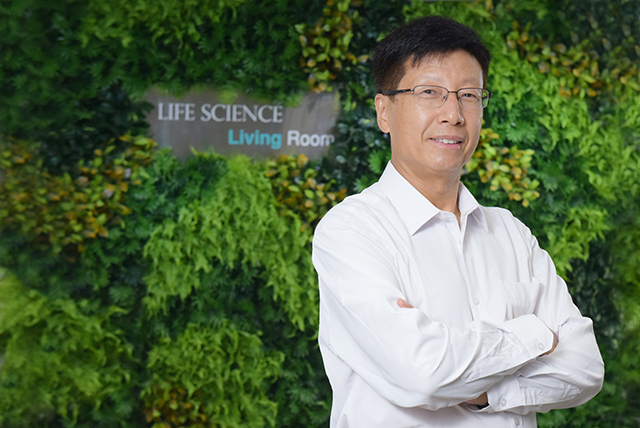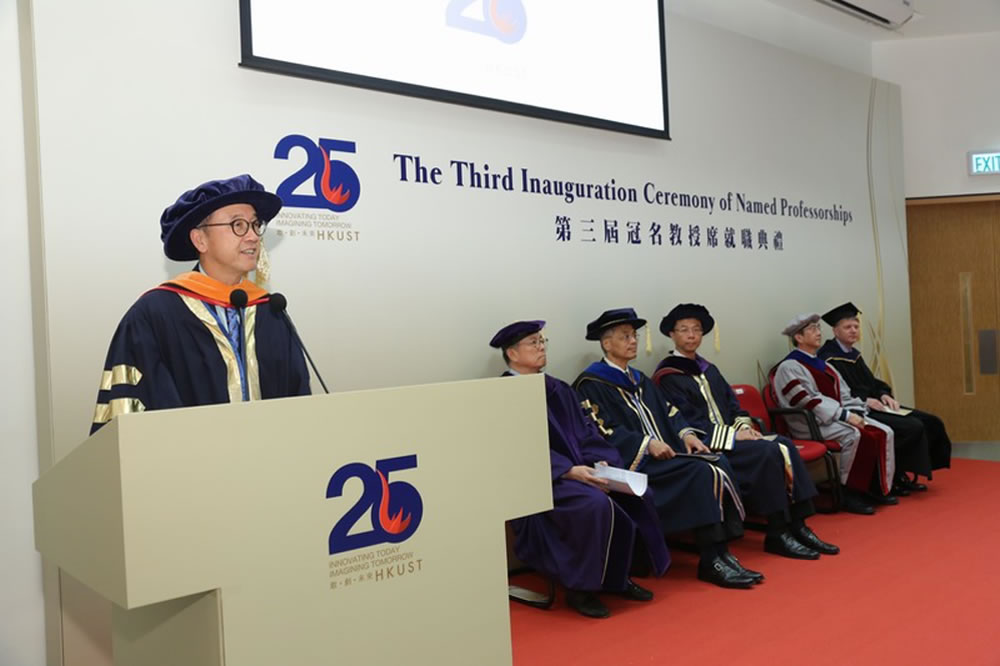Life expectancy is rocketing worldwide, but living longer does not always mean living better. This global trend has turned the spotlight on the effects of aging —from wrinkles and graying hair to degenerative conditions that take a devastating toll on individuals, families and societies. Could there be a way to turn back the biological clock, or at least slow down the aging process?
For Professor Ting Xie, the answer lies in stem cells—the “building blocks” of the human body, which divide over and over again to replenish our blood, bone, skin and organs. A leader and pioneer in stem-cell research, Professor Xie has spent many years exploring how the power of these cells—the body’s very own healing mechanism—can be harnessed to treat illness and even combat aging.
He was the first in the world to show that the fate of stem cells is determined by their surroundings, known as their microenvironment or “niche.” As niche cells age, their functioning deteriorates. “Just as car engines lose power over time,” he explains, “the environment weakens its support for stem cell maintenance and proliferation.” This leads to signs of aging, such as wrinkles and back pain. By targeting the niche, Professor Xie and his team hope to rejuvenate human stem cells and slow down aging one day. In another study, they managed to reverse aging altogether—at least in fruit fly stem cells.
Perhaps surprisingly, Professor Xie did not originally intend to pursue a career in stem-cell research. Growing up in rural Mainland China and eager to help improve crop quality and yield, he pursued BA and MA degrees in plant genetics and breeding at China Agricultural University. Only after arriving in the US to start a Ph.D. at Rutgers University did he realise that his interest truly lay in molecular biology and biochemistry. “I was more attracted to how animals develop from fertilized eggs,” he explains.
The switch paid off. Soon, Professor Xie had published his very first paper in Science—a remarkable achievement for a graduate student. This set the stage for success. In 2000, after postdoctoral training at the U.S.’s Carnegie Institution of Science, Professor Xie joined the Stowers Institute for Medical Research in Kansas, Missouri as a founding member. He spent the next 20 years at the Institute, where his laboratory’s cutting-edge research on stem cell niches changed the landscape of the field for good.
In early 2021, HKUST welcomed this exceptional scholar into its rank as Kerry Holdings Professor of Science, and Head and Chair Professor of the Division of Life Science. He brings to this role not only his outstanding academic expertise and passion for teaching but also his experience of establishing first-class research infrastructure with partner institutions. Collaborating with various institutions, for example, Professor Xie recently turned his attention to the potential of stem-cell therapy to treat retinal degenerative disorders, which place a heavy burden on society. Without knowing exactly what causes conditions like glaucoma, there is a long way to go. “But we will do it,” he says. “We have hope.”
Hope is precisely what Professor Xie’s research offers—to patients, to scientists, to society. Thanks to his paradigm-shifting discoveries, we are coming ever closer to achieving the “holy grail” of regenerative medicine—staying healthier for longer.

 |













